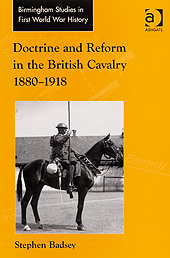A prevalent view among historians is that both horsed cavalry and the cavalry charge became obviously obsolete in the second half of the nineteenth century in the face of increased infantry and artillery firepower, and that officers of the cavalry clung to both for reasons of prestige and stupidity. It is this view, commonly held but rarely supported by sustained research, that this book challenges. It shows that the achievements of British and Empire cavalry in the First World War, although controversial, are sufficient to contradict the argument that belief in the cavalry was evidence of military incompetence. It offers a case study of how in reality a practical military doctrine for the cavalry was developed and modified over several decades, influenced by wider defence plans and spending, by the experience of combat, by Army politics, and by the rivalries of senior officers. Debate as to how the cavalry was to adjust its tactics in the face of increased infantry and artillery firepower began in the mid nineteenth century, when the increasing size of armies meant a greater need for mobile troops. The cavalry problem was how to deal with a gap in the evolution of warfare between the mass armies of the later nineteenth century and the motorised firepower of the mid twentieth century, an issue that is closely connected with the origins of the deadlock on the Western Front. Tracing this debate, this book shows how, despite serious attempts to ?learn from history?, both European-style wars and colonial wars produced ambiguous or disputed evidence as to the future of cavalry, and doctrine was largely a matter of what appeared practical at the time.




